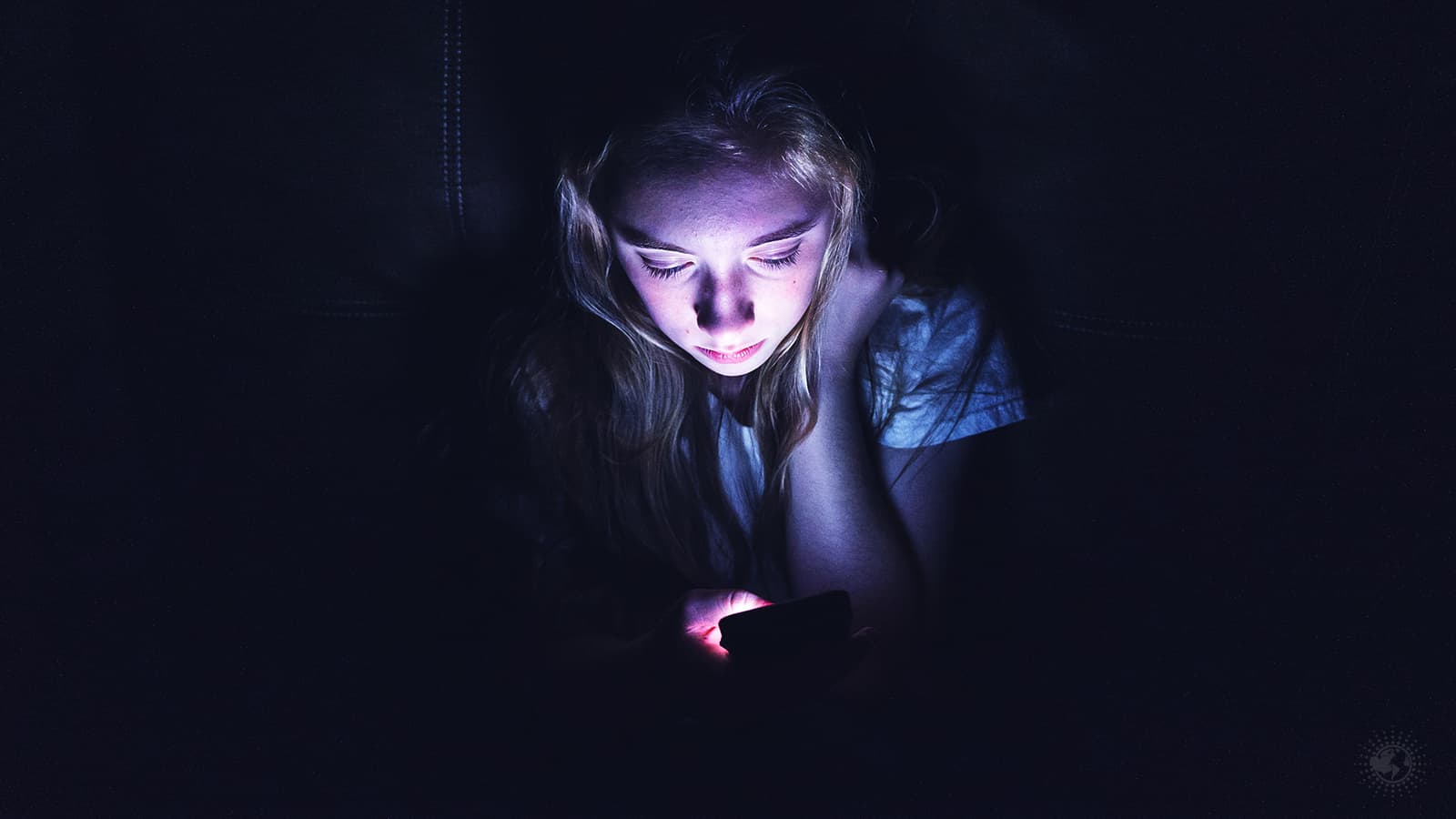These days, most people have at least one social media account. It doesn’t matter what walk of life people are from, there is a networking site for everyone out there. People are more connected now than they have ever been.
It’s no surprise that social media addiction has become a problem. Social media provides so many things that people need these days – attention, entertainment, the ability to be someone else inconspicuously, an escape from reality, and more. It seems that this type of addiction provides many of the highs that drugs do.
Unfortunately, like drugs, social media has a major downside. For a long time, scientists observed behavior changes in people who have a social media addiction. A study done by a team at the University of Pittsburgh has confirmed the personality change – it seems people are more depressed when they constantly use social media.
Research from the University of Pittsburgh
The idea of linking social media and depression is not a new concept. In fact, it’s been studied for decades. However, research is just beginning to bear fruit as the effect of social media on people’s mental health takes time to show up.The team of researchers was headed by Dr. Brian Primack. He is the dean of the College of Education at the University of Pittsburgh as well as a professor of public health at the University of Arkansas. Other members of the team were Ariel Shensa, PhD, Jaime E. Sidani, PhD, César G. Escobar-Viera, MD, PhD, and Michael J. Fine, MD, MSC. The findings were published in the American Journal of Preventative Medicine (AJPM) on December 10, 2020.
The study was started in 2018 and followed over 1000 participants for six months. The participants ranged from ages 18 to 30 and were separated into groups. These groups were created according to how much time the participants spent on social media. They were also created according to people who were initially depressed vs. people who were not initially depressed.
The most interesting result from the study was that almost 10 percent of the participants who weren’t initially depressed became depressed after six months of constantly using social media. That may not sound like a lot, but when you consider that over 3.6 billion people worldwide use social media, that’s a lot of people that are going to be depressed. Maybe scientist have known that the internet makes people depressed for decades, but this study shines a light on the fact that this may become a global epidemic.
Effects of Social Media on Society
Why is social media having such a negative effect on people’s mental health? When you look at social media on the surface, it seems like a wonderful advancement for society.
People can keep in touch with distant loved ones. They have quicker access to world news. They can be entertained by adorable cats. Social media even adds to the expansive selection of knowledge that people now hold in the palm of their hands.
No one disputes that all of this is great. But your favorite platform might still have a negative effect on people. The bigger question is if the good outweighs the bad? The answer to this probably won’t clear for a long time, but as long as scientists such as the team from the University of Pittsburgh continues with research objectives, the answer will become evident (hopefully before too much damage is done).
Misinformation problems
One of the biggest problems with social media is that it is widely unregulated and people can put anything out there, even if it’s not true. This leads to many major problems that send a ripple effect throughout the entire world. Misinformed people tend to behave in ways that they would not otherwise do because of these lies.
The scary part of this is that these lies don’t just affect small things in people’s lives. They can upend governments, economies, and even militaries. Social media has become a powerful weapon, and unfortunately any and everyone has access to it.
While most people use social media responsibly, it is the ones who use it irresponsibly that tend to make the most noise. This noise is attractive for both sides – everyone loves a bit of drama. In fact, it adds to the issue of social media addiction.
The Boost in Anti-Social Behavior
Another issue is that social media tends to make people antisocial. This is ironic since the whole point of social media is to connect with people more than ever before. However, social media tends to cause empty connections.
People are connecting for entertainment, gossip, news, business, and more. However, they aren’t necessarily making meaningful connections. Their connections might be called friends on the social media platform, but they’re really just names and faces.
In fact, researchers have identified different categories of anti-social behavior that is caused by the internet. These categories are:
- Illegal downloading
- Pornographic or aggressive, obscene information
- Cyberbullying
- Cheating
- Online gambling
The more people engage in these antisocial activities on their favorite platform, the more they feed their social media addiction. Unfortunately, their desire for attention is never fulfilled and neither is their addiction. It becomes a savage cycle of what some could call internet abuse.
Can Social Media Be Used in a Healthy Way?
Social media isn’t all bad. Plenty of people use it in a healthy way. These are usually the people that do not have a problem with social media addiction.
Social media was never supposed to take the place of real, physical connections. It was simply supposed to connect people in ways that was innovative and exciting. The fact that social media addiction, as well as other mental conditions, are being exacerbated by people’s use of this technology may indicate that there are serious underlying mental health issues that have not been properly addressed on a mass scale before social media came along.
Unless mental health issues become a widescale public concern, social media may continue to have the wrong effect on people. Indeed, depression seems to be a trend among social media users that isn’t going anywhere anytime soon.
Depression Affects Everyone
Depression is an equal-opportunity condition. It affects all races, genders, religions, ethnicities, and any other groups you can think of. While it’s true that certain groups have a higher rate of depression than others, this is likely due to other factors relating to socioeconomic status. The condition itself doesn’t rely on genetics.According to the World Health Organization (WHO), depression affects more than 264 million people globally. It’s already such a huge problem that it’s scary to think that social media is going to exponentially increase cases of depression.
Depression Statistics and Facts
A look at depression statistics can put the problem into perspective. A couple of statistics were given above about how many people suffer from depression. Below are a few more from the National Institute of Mental Health and some facts to go along with those.
- In 2017, over 7% of the United States population had suffered at least one major depressive episode.
- More women than men have major depressive episodes.
- Depression hits the 18-25 age group harder than other age groups.
- Around 35 percent of adults don’t get treatment for their depression.
- Over 70 percent of people who have had a major depressive episode suffered from some type of impairment.
Depression is a real problem and internet addiction is clearly not making it any easier to deal with this mental health crisis. The next section has some tips to help curb back an addiction to online platforms.
Tips to Curb Social Media Addiction
1. Deactivate your accounts for a while.
There is nothing wrong with taking a break from these platforms for a little while. The accounts will still be there when you go back.
2. Silence your notifications.
Notifications are good at their job. The purpose of notifications is to get your attention. In other words, to distract you from what you’re doing. You’d be surprised how much less you’d be on social media if you aren’t reminded of it every five minutes.
3. Connect more over the phone or in person.
It’s easy and convenient to connect with people through social media but make an effort to use other connection methods. You’ll find that it’s much more enjoyable when you have real social interactions.
Final Thoughts on Social Media Addiction
There is no doubt that connecting with a long-lost friend has its perks. When used responsibly, it can be entertaining, and it can make people happy. It can be a great addition to anyone’s life.
However, too much of anything is bad. It’s like overeating, taking drugs, partying, or even working too much. The addiction takes you past the benefits and straight to mental health issues like depression. If you or someone you know has an addiction to social media, take the advice above or seek help before it gets too bad.
















 Community
Community

